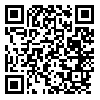1. 1- Lejoyeux M, Avril M, Richoux C, Embouazza H, Nivoli F. Prevalence of exercise dependence and other behavioral addictions among clients of a Parisian fitness room. Comprehensive psychiatry. 2008;49(4):353-8. [
DOI:10.1016/j.comppsych.2007.12.005]
2. Berczik K, Szabó A, Griffiths MD, Kurimay T, Kun B, Urbán R, et al. Exercise addiction: symptoms, diagnosis, epidemiology, and etiology. Substance use & misuse. 2012;47(4):403-17. [
DOI:10.3109/10826084.2011.639120]
3. Sachs M. Running therapy for the depressed client. Topics in clinical nursing. 1981;3(2):77-86.
4. Aidman EV, Woollard S. The influence of self-reported exercise addiction on acute emotional and physiological responses to brief exercise deprivation. Psychology of Sport and Exercise. 2003;4(3):225-36. [
DOI:10.1016/S1469-0292(02)00003-1]
5. Cook B, Hausenblas H, Crosby RD, Cao L, Wonderlich SA. Exercise dependence as a mediator of the exercise and eating disorders relationship: A pilot study. Eating Behaviors. 2015;16:9-12. [
DOI:10.1016/j.eatbeh.2014.10.012]
6. Cox R. Motivation and self-confidence in sport. RH Cox (4th Ed), Sport psychology: concepts and applications The McGraw-Hill. 199.
7. Hall HK, Hill AP, Appleton PR, Kozub SA. The mediating influence of unconditional self-acceptance and labile self-esteem on the relationship between multidimensional perfectionism and exercise dependence. Psychology of Sport and Exercise. 2009;10(1):35-44. [
DOI:10.1016/j.psychsport.2008.05.003]
8. Costa S, Oliva P. Examining relationship between personality characteristics and exercise dependence. Review of Psychology. 2012;19(1):5-11.
9. Brown R. Some contributions of the study of gambling to the study of other addictions. In WR Eadingtone & JA Cornclius, Gambling Behavior and Problem Gambling. NV. 1993;241:272.
10. Lichtenstein MB, Christiansen E, Elklit A, Bilenberg N, Støving RK. Exercise addiction: a study of eating disorder symptoms, quality of life, personality traits and attachment styles. Psychiatry research. 2014;215(2):410-6. [
DOI:10.1016/j.psychres.2013.11.010]
11. Griffiths M, Szabo A, Terry A. The exercise addiction inventory: a quick and easy screening tool for health practitioners. British journal of sports medicine. 2005;39(6):e30-e. [
DOI:10.1136/bjsm.2004.017020]
12. Hausenblas HA, Downs DS. Exercise dependence: a systematic review. Psychology of sport and exercise. 2002;3(2):89-123. [
DOI:10.1016/S1469-0292(00)00015-7]
13. Hausenblas HA, Downs DS. How much is too much? The development and validation of the exercise dependence scale. Psychology and health. 2002;17(4): 387- 404. [
DOI:10.1080/0887044022000004894]
14. Association AP. Diagnostic and statistical man. American Journal of Psychiatry. 2000;167:312-20.
15. Müller A, Claes L, Smits D, Gefeller O, Hilbert A, Herberg A, et al. Validation of the German version of the exercise dependence scale. European journal of psychological assessment. 2013. [
DOI:10.1037/t23583-000]
16. Cash TF, Now PL, Grant JR. Why do women exercise? Factor analysis and further validation of the Reasons for Exercise Inventory. Perceptual and motor skills. 1994;78(2):539-44. [
DOI:10.2466/pms.1994.78.2.539]
17. McAllister R, Caltabiano ML. Self-esteem, body-image and weight in noneating-disordered women. Psychological Reports. 1994;75(3):1339-43. [
DOI:10.2466/pr0.1994.75.3.1339]
18. Pope H, Pope HG, Phillips KA, Olivardia R. The Adonis complex: The secret crisis of male body obsession: Simon and Schuster; 2000.
19. Smith D, Hale B. Validity and factor structure of the bodybuilding dependence scale. British journal of sports medicine. 2004;38(2):177-81. [
DOI:10.1136/bjsm.2002.003269]
20. Hurst R, Hale B, Smith D, Collins D. Exercise dependence, social physique anxiety, and social support in experienced and inexperienced bodybuilders and weightlifters. British Journal of Sports Medicine. 2000;34(6):431-5. [
DOI:10.1136/bjsm.34.6.431]
21. Szabo A, Griffiths MD. Exercise addiction in British sport science students. International Journal of Mental Health and Addiction. 2007;5 (1): 8-25. [
DOI:10.1007/s11469-006-9050-8]
22. Modoio VB, Antunes HKM, Gimenez PRBd, Santiago MLDM, Tufik S, Mello MTd. Negative addiction to exercise: are there differences between genders? Clinics. 2011;66(2):255-60. [
DOI:10.1590/S1807-59322011000200013]
23. Terry A, Szabo A, Griffiths M. The exercise addiction inventory: A new brief screening tool. Addiction Research & Theory. 2004;12(5):489-99. [
DOI:10.1080/16066350310001637363]
24. Szabo A, De La Vega R, Ruiz-Barquín R, Rivera O. Exercise addiction in Spanish athletes: Investigation of the roles of gender, social context and level of involvement. Journal of behavioral addictions. 2013;2(4):249-52. [
DOI:10.1556/JBA.2.2013.4.9]
25. Villella C, Martinotti G, Di Nicola M, Cassano M, La Torre G, Gliubizzi MD, et al. Behavioural addictions in adolescents and young adults: results from a prevalence study. Journal of gambling studies. 2011;27(2): 14-20. [
DOI:10.1007/s10899-010-9206-0]
26. Hausenblas HA, Downs DS. Relationship among sex, imagery and exercise dependence symptoms. Psychology of Addictive Behaviors. 2002;16(2):169. [
DOI:10.1037/0893-164X.16.2.169]
27. Mónok K, Berczik K, Urbán R, Szabo A, Griffiths MD, Farkas J, et al. Psychometric properties and concurrent validity of two exercise addiction measures: A population wide study. Psychology of Sport and Exercise. 2012;13(6):739-46. [
DOI:10.1016/j.psychsport.2012.06.003]
28. KAVOUSI P. FORMATION AND REDUCTION OF 5-HYDROXYMETHYLFURFURAL DURING DEEP-FAT FRYING OF BANANAS. 2014.
29. Gallucci NT. Sport psychology: Performance enhancement, performance inhibition, individuals, and teams: Psychology press; 2013. [
DOI:10.4324/9781315885094]
30. Lichtenstein M, Christiansen E, Bilenberg N, Støving R. Validation of the exercise addiction inventory in a D anish sport context. Scandinavian Journal of Medicine & Science in Sports. 2014;24(2):447-53. [
DOI:10.1111/j.1600-0838.2012.01515.x]

 ، محمدتقی اقدسی2
، محمدتقی اقدسی2 
 ، ولی علیزاده3
، ولی علیزاده3 








